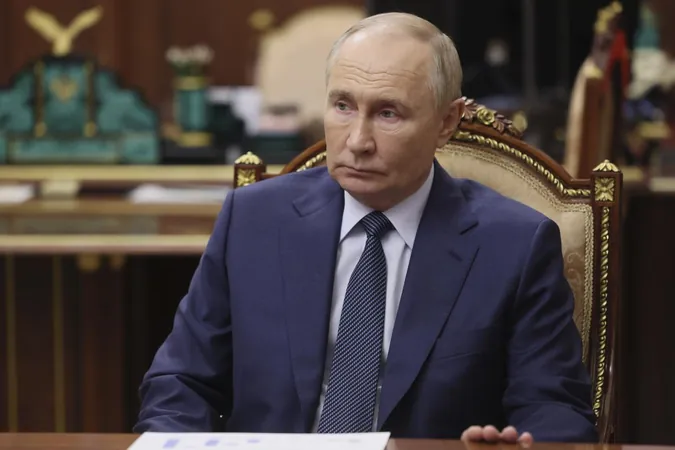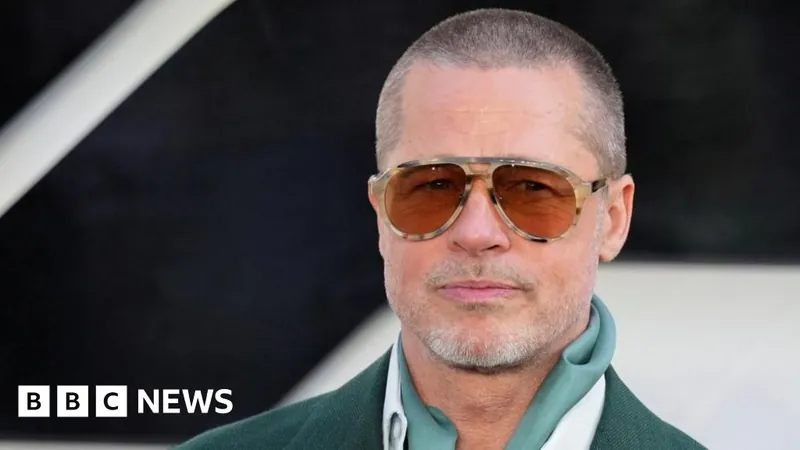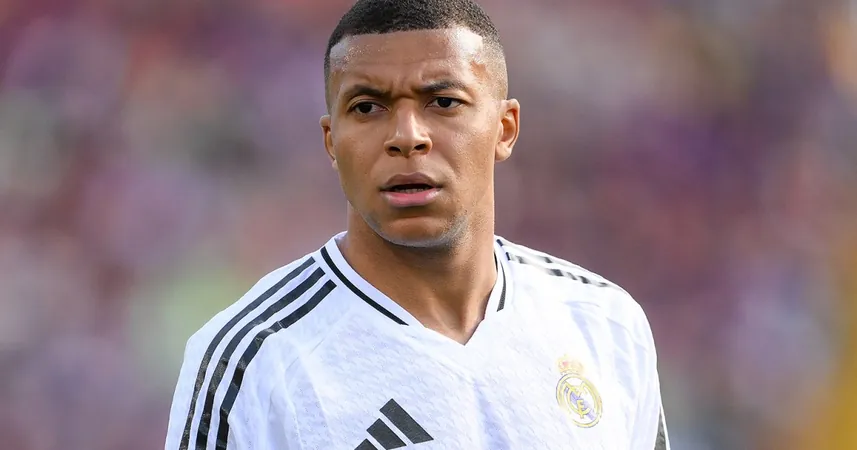
Major Russia-Iran Partnership Pact on the Horizon Amid Regional Turmoil
2025-01-13
Author: Chun
In a significant diplomatic move, Russian President Vladimir Putin is set to welcome Iranian President Masoud Pezeshkian this week to finalize a comprehensive partnership agreement, as confirmed by the Kremlin on Monday. The signing of this pact is slated to take place during Pezeshkian's visit to Moscow on Friday.
This agreement signals an intention to deepen ties between Russia and Iran, focusing on enhancing trade, transportation, logistics, and humanitarian cooperation. Additionally, the two leaders are anticipated to engage in discussions regarding pressing regional and international issues.
The backdrop to this partnership is fraught with complexities. Ukraine and its Western allies have accused Iran of supplying hundreds of drones to Russia, which have been used in the ongoing conflict in Ukraine. While both Moscow and Tehran have denied these claims, the drone strikes attributed to Russian forces have raised alarms over the implications for Ukrainian infrastructure and civilian safety.
Iran's military ambitions are also evident, as it seeks advanced Russian weaponry, including long-range air defense systems and fighter jets, to bolster its defenses against perceived threats from Israel. In recent years, Tehran has expressed interest in acquiring the advanced Sukhoi Su-35 fighter jets from Russia to upgrade its aging air force, which has been hampered by international sanctions. Although some progress has been made with the delivery of Yak-130 trainer jets in 2023, Iran's aspirations remain largely unfulfilled.
Peeking into the future, Pezeshkian's visit comes just three days ahead of the inauguration of U.S. President-elect Donald Trump, who has indicated plans to negotiate a peace deal regarding the Ukraine conflict—an endeavor that could alter the geopolitical landscape significantly.
On another front, Iran's influence in the Middle East is under pressure. The so-called “Axis of Resistance,” which includes key allies like Hezbollah and Hamas, has been destabilized amidst intensified Israeli military operations. These conflicts have put Iran's support for groups in the region under scrutiny, especially as Israel's military actions have led to significant losses for both Hezbollah and Hamas.
The Iranian economy, which has suffered tremendously since the breakdown of the 2015 nuclear agreement, continues to face hardships. This economic strain is compounded by Israel's targeting of Iranian-supplied military assets, including the S-300 anti-aircraft systems.
Despite the anticipated benefits of the Russia-Iran partnership, discontent has been brewing within Iran's Revolutionary Guard over Moscow's role in the region. A leaked audio recording featuring a high-ranking Guard general criticized Russia for the challenges Iran has faced in Syria, reflecting internal discord regarding the alliance.
As the global stage shifts and regional tensions mount, the upcoming meeting between Putin and Pezeshkian could mark a pivotal moment for both Russia and Iran, shaping their strategies and alliances in an increasingly volatile world.






 Brasil (PT)
Brasil (PT)
 Canada (EN)
Canada (EN)
 Chile (ES)
Chile (ES)
 Česko (CS)
Česko (CS)
 대한민국 (KO)
대한민국 (KO)
 España (ES)
España (ES)
 France (FR)
France (FR)
 Hong Kong (EN)
Hong Kong (EN)
 Italia (IT)
Italia (IT)
 日本 (JA)
日本 (JA)
 Magyarország (HU)
Magyarország (HU)
 Norge (NO)
Norge (NO)
 Polska (PL)
Polska (PL)
 Schweiz (DE)
Schweiz (DE)
 Singapore (EN)
Singapore (EN)
 Sverige (SV)
Sverige (SV)
 Suomi (FI)
Suomi (FI)
 Türkiye (TR)
Türkiye (TR)
 الإمارات العربية المتحدة (AR)
الإمارات العربية المتحدة (AR)